Your insight into religious freedom
October 2023-January 2024

October 2023-January 2024
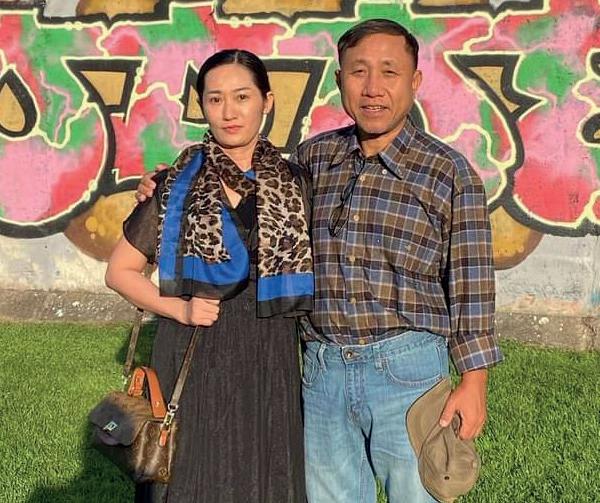
Also inside this issue: Feature: Why are Cuba’s religious leaders going into exile?
In focus: Eritrea: The struggle continues and more...
Nguyen Bac Truyen: Nguyen Bac Truyen and Bui Thi Kim Phuong, September 2023 Nguyen Bac TruyenIn early September, we suddenly received some good news: after six years in prison, human rights defender Nguyen Bac Truyen had been released! He left Vietnam with his wife, Bui Thi Kim Phuong, and safely arrived in Germany on 8 September.
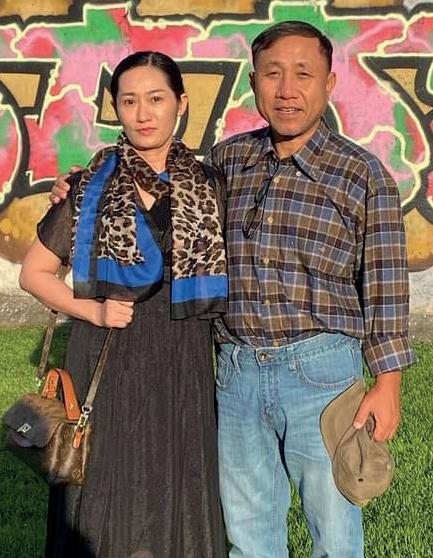
Nguyen Bac Truyen’s actions exemplify what it means to love one’s neighbour. As a Hoa Hao Buddhist, he was already at risk of harassment and other rights violations. Yet he still used his legal expertise to defend the rights of others, making him a regular target of Vietnamese authorities.
Truyen was eventually handed an 11-year prison sentence, but he continued to stand up for what is right. This included going on hunger strike in 2019 (along with other prisoners of conscience) to protest the illtreatment of a fellow prisoner; a Catholic activist named Nguyen Van Hoa. On this and other occasions, there were serious concerns for Truyen’s wellbeing.
On the sixth anniversary of his abduction by police, Truyen wrote a letter to his wife.
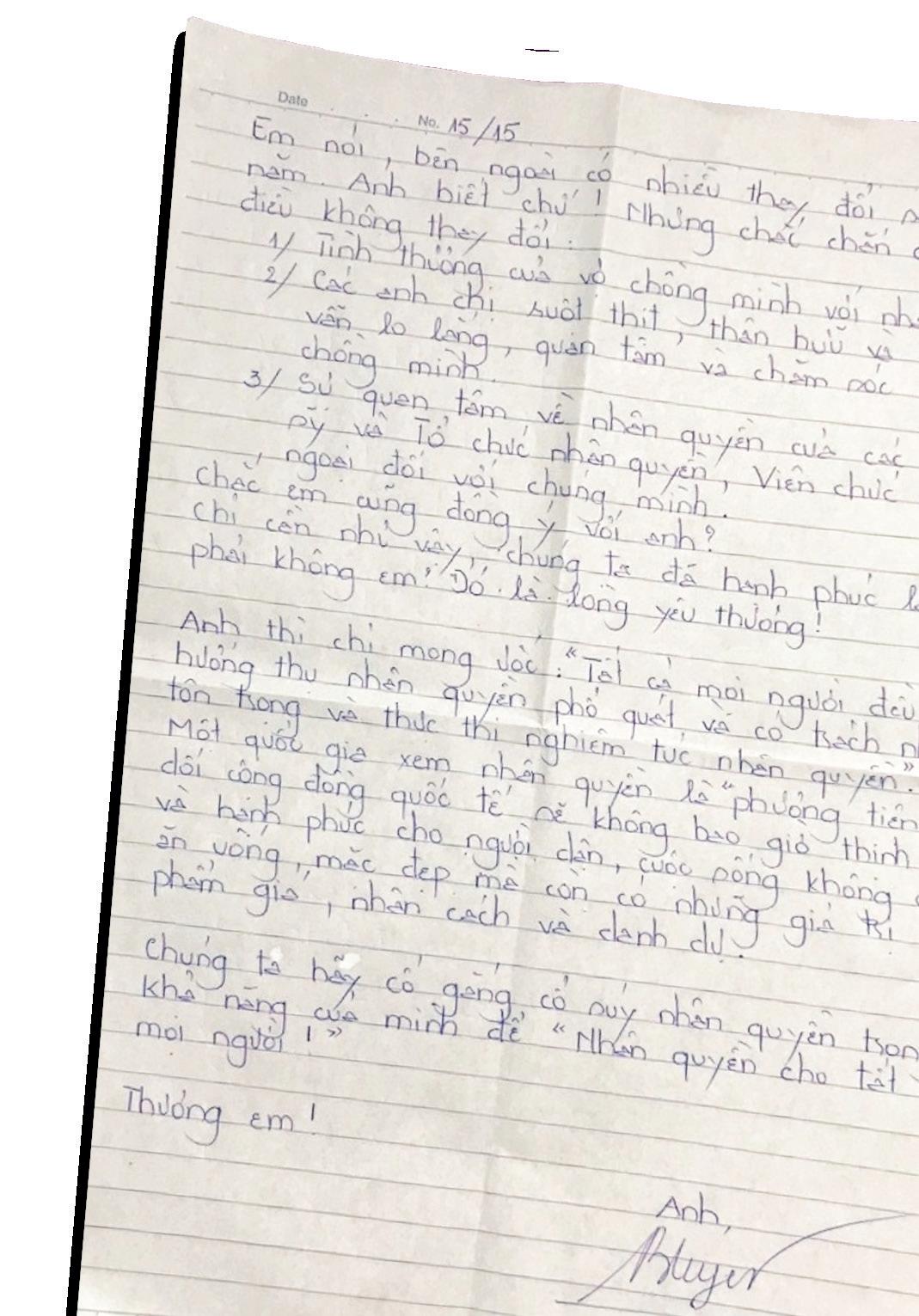
The following extracts provide a small insight into the years of injustice he has endured. His words illustrate his unwavering passion for upholding human rights for all – even from a prison cell.
30 July 2023
At exactly 8:00am on 30 July 2017, I was abducted by plain clothes public security agents while on my way to the Redemptorist Church of Saigon.
I was going to prepare for an event on Monday: the organised health check-up for veterans of the Republic of Vietnam.
The public security agents took me to the nearby local police station at the intersection of Tran Quoc Thao Street and Ky Dong Street (in District 3). Then they transported me by car to the Ministry of Public Security, read the arrest warrant and searched my vehicle.
They took me to Tan Son Nhat Airport at 2pm. I took the 3.30pm flight, arrived at Noi Bai Airport around 5pm, and arrived at the B14 detention centre at 6pm.
Truyen was held incommunicado for nine months until his trial. For six of those months he was prevented from seeing his wife, and was only granted access to his lawyers two weeks before the trial began. On 5 April 2018 Truyen was convicted of ‘carrying out activities aimed at overthrowing the government’.
Up until today, my prison journey has been exactly six years. 30 July 2017-30 July 2023; I have been imprisoned six years already.
When I was held at B14, my cellmate asked me how many years I would predict. My guess was 10-15 years, and I was right. [Truyen was sentenced to 11
years in prison, followed by three years of probation under house arrest.]
He asked, ‘How can you mention ten plus years in prison in such a light tone as if it was only a few months in prison?’
‘Can being worried do anything good for me?’ I ask.
I know that each day I spend in prison is one day the accusers have to pay for.
I am a nobody; just a very ordinary citizen, challenging the entire political system on their human rights records. They have more to lose than I do…
Human rights reports by the EU, the United States, the United Nations, and human rights organisations show how serious the human rights violations [by the Vietnamese government] are. Accompanying the reports are recommendations, warnings, and diplomatic, economic and political sanctions.
No one takes something from another person without having to pay a price.
You said a lot has changed in the outside world in the past six years. I know! But there are certainly things that have not changed:
1. Our love for each other.
2. Our siblings, relatives and friends who still worry, care and take care of us.
3. The advocacy for human rights by members of [the US] Congress, human rights organisations, and diplomats.
I simply wish [for] everyone [to] enjoy universal human rights and take the responsibility to respect and strictly enforce human rights. Life is not only about material gains, but also about having dignity, character and honour. Let’s strive to promote human rights in our ability to bring human rights for all!

I love you!
Nguyen Bac TruyenAt the time of writing, Vietnamese state media has been silent on why Truyen was released before serving his full sentence. However, it appears that international advocacy played a key role, and Bui Thi Kim Phuong sincerely thanked the German government in particular for their support.
We also want to thank everyone who has taken the time to pray and write to Truyen over the years.
Now that Truyen is starting a new season as a free man, we reiterate that he should never have been imprisoned in the first place.
We also remember that countless others are still experiencing injustice at the hands of the Vietnamese authorities, including three men who were sentenced alongside Nguyen Bac Truyen in 2018: Nguyen Trung Ton, Pham Van Troi and Truong Minh Duc.
With your help, we will keep working to hold the Vietnamese authorities accountable for their persistent violations of human rights.
More than 300,000 people have fled Cuba since the government crackdown following nationwide peaceful protests on 11 July 2021. This is the biggest wave of emigration in Cuba’s history.
Many of them are religious leaders, journalists, human rights defenders and others who had no choice but to leave the island under intense pressure from the government. The vast majority are ordinary Cubans who, following the 11 July crackdown and the imposition of even harsher legislation, see no future for themselves in Cuba.
In 2017, at 26 years old, Pastor Fundora began a ministry with his wife, Maidelis Mesa. They called it God Shakes Cuba and the Nations. As part of an unrecognised network which the government refuses to register, they immediately became a target and Pastor Fundora lost his job as a chef.
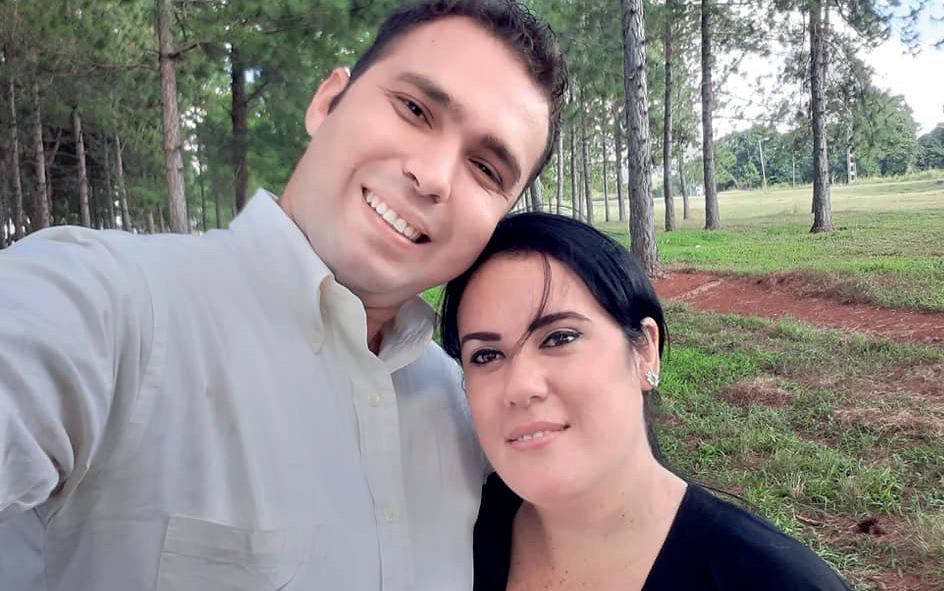
‘Righteous people must seek to do the right things; to resolutely refuse to engage in unjust acts. Even if no one else joins them, they still try to protect what is right…’
Nguyen Bac Truyen
You may recognise this as a similar experience to that of Pastor Alaín Toledano Valiente and his church. He is another religious leader who was forced into exile last year, following two decades of intense harassment, which culminated in an ultimatum: prison or exile.
The targeting of Pastor Fundora escalated after 11 July 2021. He had opened some houses of prayer to provide comfort for those whose relatives had been imprisoned for their involvement in the protests. Because of this, he was summoned and interrogated by State Security in January 2022.
Pastor Fundora was eventually captured in a police ambush on 1 March 2022. After a prolonged interrogation, he was given eight days to leave the island or, like Pastor Toledano Valiente, face a 30-year prison sentence.
Faced with no other option, he decided to flee to Switzerland where he received asylum on his own. Thanks to the support of the local Latino Christian community, his wife and daughter were able to join him a few weeks later.
From then on, Pastor Fundora received constant threats, harassment and surveillance. He often had to climb over walls to evade the police, or hide with members of the houses of prayer. Unable to arrest him, the police targeted the owners of the houses instead – yet the prayer groups continued to grow and multiply.
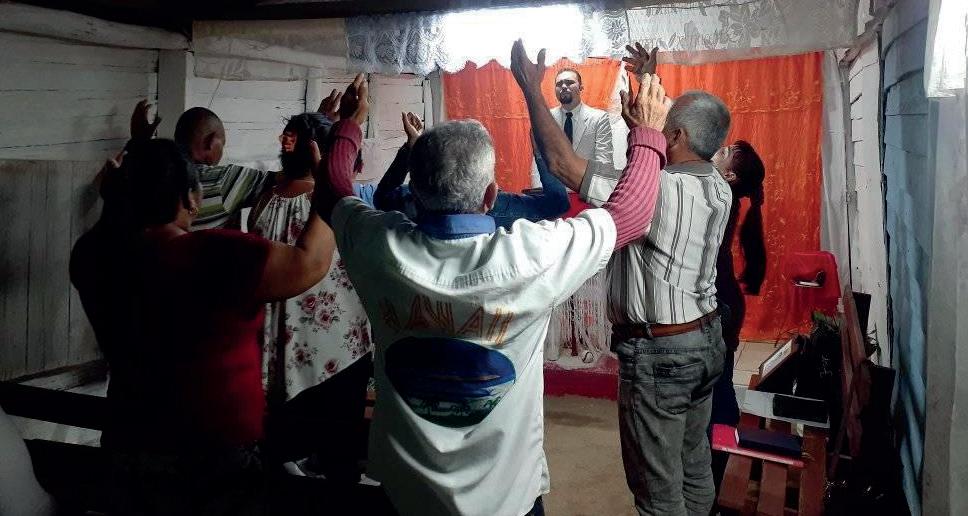
Police went on to accuse Maidelis of being an accomplice to her ‘counterrevolutionary’ husband. They raided the family home on 25 January, and threatened to prosecute her –saying that, when she went to prison, the couple would lose custody of their young daughter to the State.
The couple continue to work for freedom of religion or belief in Cuba, even from beyond its borders. Their proximity to Geneva has enabled them to attend the United Nations Human Rights Council several times, to share the reality of human rights in Cuba.
This is a common feeling among exiled Cubans, and not without reason. State Security agents actively infiltrate exile communities, monitoring, harassing and informing the Cuban government of the activities of exiles in their new countries of asylum.
We know there are many more violations to be uncovered and Cubans in need of solidarity, so we thank you for your continued support and prayers, specifically for the documenters who have taken up the work of investigating and exposing injustice.
Their actions are admirable and courageous, especially since exile does not always mean freedom. One defender of freedom of religion or belief told us that the trauma of round-the-clock harassment over a period of six months continues to affect him and his family, to the point that he does not want to associate with any other Cubans, even in exile, for fear of that they might be a spy.
Despite all of our documenters being forced into exile over the course of last year, we have seen new individuals courageously step forward to stand in the gap. Together we recorded 657 cases of freedom of religion or belief in 2022. This is more than double the 292 we documented in 2021.
The number of violations is staggering. Yet we take some reassurance that each number represents another situation of injustice which has been brought to light, which may otherwise have remained in the dark.
With your help, we can continue standing alongside Cubans who are under pressure because of their religion or belief; listening to their experiences; recording and verifying the details; sharing them with the world; and calling for action.
Cuba is currently the biggest section in Connect & Encourage, with 24 addresses of people who remain on the island. Some have loved ones in prison or are in prison themselves. Write to someone in need of hope:
csw.org.uk/ConnectEncourage
‘Despite this, the prayer groups continued to grow.'
‘Exile does not always mean freedom.'
remaining students’ wellbeing is limited, so we continue to pray, knowing that God sees them. He is close to them and is more than able to provide what they need at any given moment.
Helen is now a CSW board member, and also attends the prayer vigil. During this year’s online event, several people shared how they had prayed for Helen’s release, all those years ago: ‘My daughter, who was so little then, used to pray for Helen regularly. She is now in her twenties.’
‘My life is in your hand,’ sings a group of young Eritrean Christians in a worship video on YouTube. It is a beautiful, uplifting song about praising God, who knows all our cares and concerns. Yet public or private acts of worship, outside the parameters of Eritrea’s three permitted denominations, put any participants at risk.
While trying to record a second worship video to share online, 103 young Eritreans were arrested in mid-April 2023. Many of them were students, some from the only higher education institute in the country. During the annual prayer vigil co-organised by CSW in May, Selam Kidane of Release Eritrea explained that they had ‘the very rare and very special privilege of studying, rather than carrying guns.’
This case is yet another reminder of the sad reality of life in Eritrea for
religious and belief communities over the past 21 years. The Eritrean regime remains among the worst human rights violators in the world, and is deemed by a UN Commission of Inquiry to have been committing atrocity crimes since 1991.
An infamous detention facility
Detention facilities in Eritrea include shipping containers, underground cells or simply the open air in the desert. They are unsanitary; food and drinkable water are in short supply, and medical attention is insufficient and often withheld as punishment.
Mai Serwa prison, where the 103 Christians were taken, is no exception. It is infamous for its shipping containers, extremely unsanitary conditions, overcrowding and inhumane treatment of prisoners. Information about the
Almost two decades ago, the gospel singer Helen Berhane was held in Mai Serwa; long-term supporters may remember her case. She was caught teaching young Christians in secret, arrested, and eventually imprisoned in a shipping container in Mai Serwa. Freezing cold at night and burning hot by day, she also endured hunger, beatings and torture. Despite this, she repeatedly refused to recant her faith.
Helen was released 32 months later, in 2006, having been beaten almost to death. Miraculously, she managed to escape the country while still unable to walk properly, and is now a fearless advocate for those who are still suffering in Eritrea. She also assists victims of violations committed by Eritrean forces in Ethiopia’s Tigray region.
One of the key ways we respond to the situation in Eritrea is with prayer, and many of you have joined us for the annual protest vigil we co-organise with Church in Chains Ireland, the Eritrean Orthodox Church in the UK, Human Rights Concern Eritrea, and Release Eritrea.
Another added, ‘I remember Helen's story and her eventual release from prison. I thank God for her deep faith and courage, and she is here helping us remembers those in prison today.’ While the ongoing arrests show how little has changed over the past decades – and in many ways, the human rights situation has deteriorated even further – we can look at Helen and remember God’s power to deliver. We can also thank God for the release of 51 of the 103 students in early September; 42 women and nine men. May this stir us to continue praying with the hope and conviction that freedom for others is indeed possible.
As Helen sang at the close of the prayer vigil, in a moving song about the cost of being a Christian: ‘We never stop following Jesus and doing the good job of justice and righteousness.’
Pray using p.11 of the Prayer Diary. Read about our advocacy for Eritrea at the United Nations, p.10.
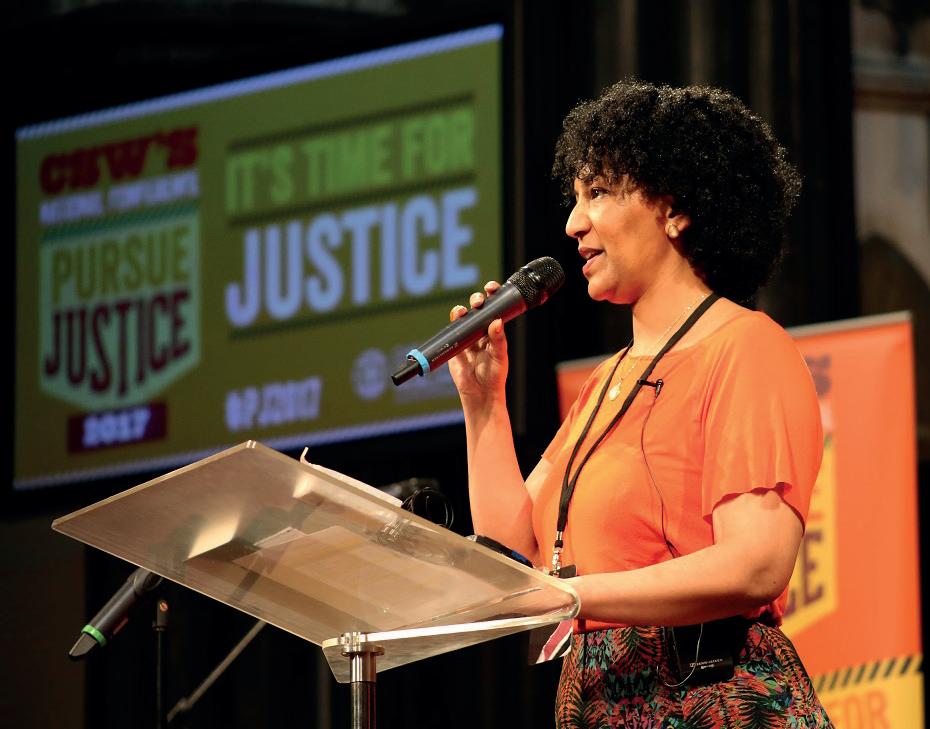
‘Is there anything we can do as well as praying for those imprisoned in Eritrea?’ one supporter asked during our annual prayer and protest vigil for Eritrean prisoners of conscience. Our answer was yes – the prayer vigil always has a protest element, and this year we created a Facebook and Twitter campaign highlighting the lack of rights and freedoms in Eritrea.
Research and analysis is a core part of our work, and we regularly advocate at international arenas like the United Nations. We are pleased to share the some of the results of recent advocacy on Eritrea. As a supporter of CSW, you are part of this work, and part of this win.
In July, the mandate of the Special Rapporteur on the situation of human rights in Eritrea was renewed for a further year and was strengthened slightly following a vote at the UN Human Rights Council (HRC). This was what we had advocated for.
Special Rapporteurs are independent, impartial and unpaid human rights experts appointed by the UN to either monitor the general human rights situation in a specific country, or how a specific thematic human right or issue, like freedom of religion or belief, is being respected across the world.
Each Rapporteur’s role includes monitoring, reporting on and making recommendations for their area of responsibility.
Mohamed Abdelsalam Babiker is the current Special Rapporteur on Eritrea. In his report released during the June HRC session, he highlighted – among other violations – issues surrounding forced military conscription, arbitrary arrests, disappearances and torture, and the continuing detentions of Christians and other religious adherents.
A Special Rapporteur’s mandate lasts for a set period of one year. During the June session, members of the HRC vote on whether or not it should be renewed.
There are 47 members of the Human Rights Council – each representing a UN member state. They are elected by the UN General Assembly to serve for three years.
Unfortunately, some countries on the HRC often have a vested interest in blocking the renewal of the mandates of Special Rapporteurs or Commissions of Inquiry.
For example, if one country is trying to finalise a trade deal with another country, it may not wish to be potentially seen as publicly criticising the second country’s human rights record by voting for the mandate renewal. Other countries may even be human rights violators themselves.
Consequently, although it may appear obvious that countries like Eritrea should be kept under scrutiny until it no longer commits its horrific human rights violations, we can never take the renewal of the Special Rapporteur’s mandate for granted.
‘This is what we had advocated for.’
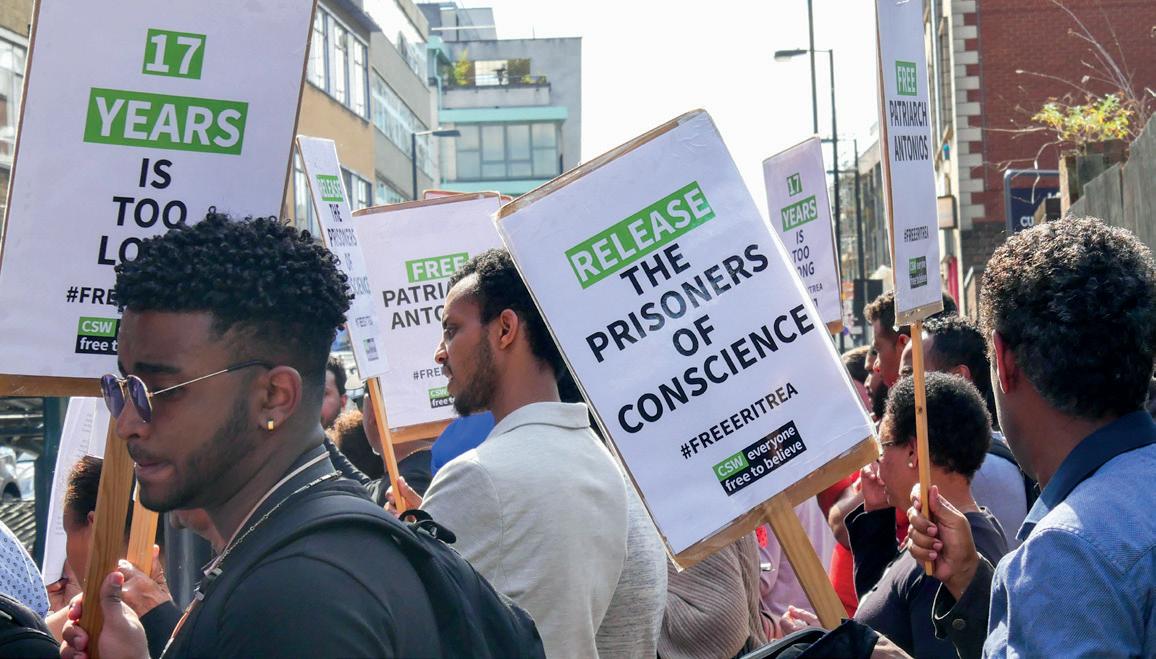
In the run up to the renewal vote, we meet with as many HRC members as we can, presenting our research to illustrate that the situation in Eritrea is still utterly dire, and encouraging them to vote for the Rapporteur’s mandate to be renewed. We are particularly grateful for the donors who made it possible for our Eritrea officer, Dr Khataza Gondwe, who is also the Africa and Middle East Team Leader and co-Head of Advocacy, to attend the March and June sessions in person and engage directly with country delegations this year.
Claire Denman, who leads our UN work, said: ‘Every year we pray earnestly as a staff team for a positive result, and every year we celebrate when the resolution renewing the mandate is passed. And almost immediately, the work of ensuring the next renewal begins! Thank you for all you do to support this work.’
The mandate of the Special Rapporteur on human rights in Eritrea is crucial to ensuring perpetrators are held to account for their continued appalling crimes, and it is the sole means of independent international monitoring. We are committed to ensuring its renewal, while we continue praying and working towards the day when it will no longer be needed.
In May 2002, the Eritrean government ordered the closure of all churches not belonging to the Orthodox, Roman Catholic or Lutheran denominations. They also ordered an end to all other religious practices except Islam.
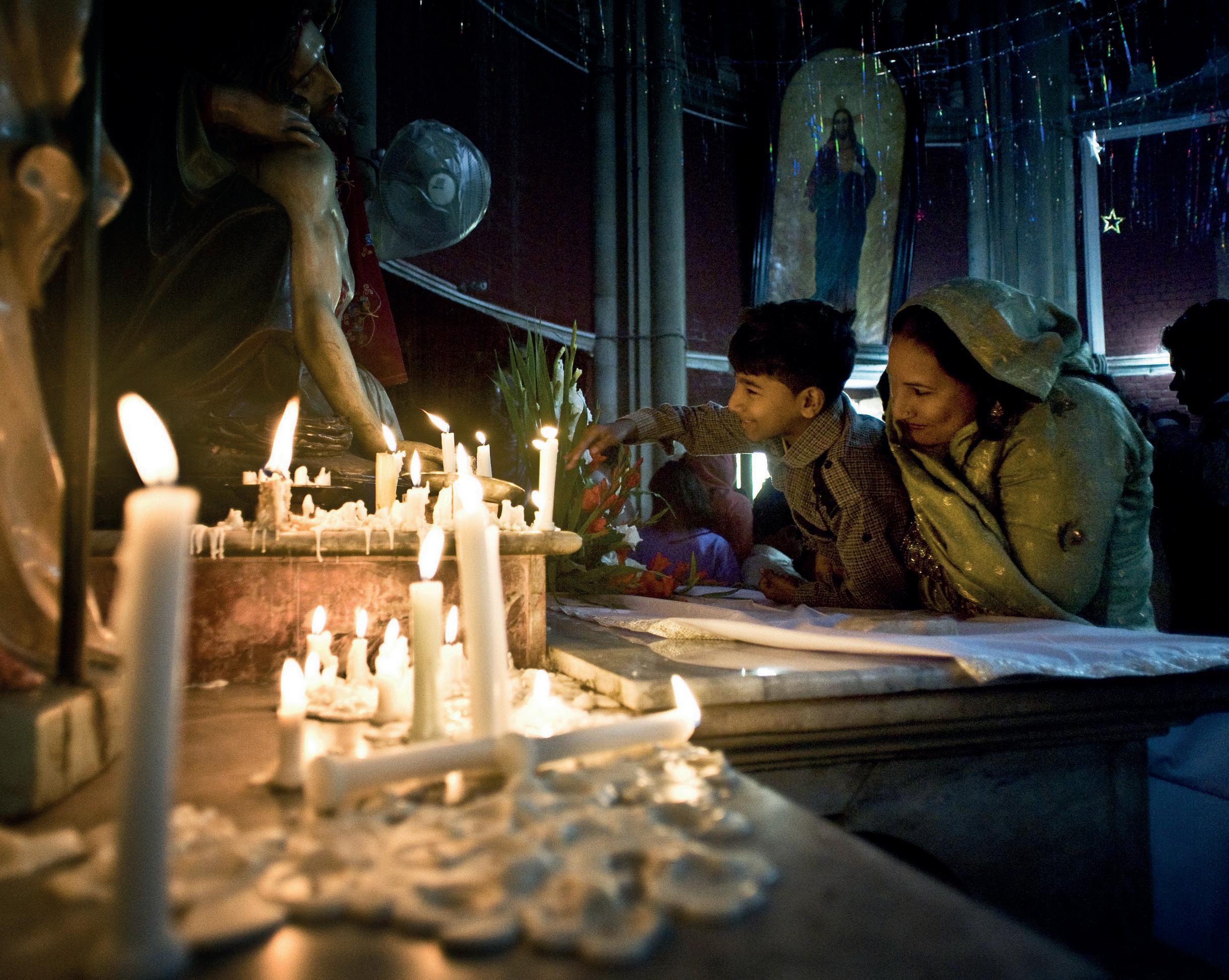
The two decades since then have been marked by a repression so severe that every month since then, several hundred citizens have risked their lives fleeing the country. In 2022, some 37,537 Eritreans applied for asylum in other countries. Meanwhile, tens of thousands of Eritreans are detained in life-threatening conditions, in more than 300 sites across the country. Most have not been formally charged with any crime, nor have they had a trial. Some have been detained for decades because of their political views or religious beliefs.
On countless occasions during CSW’s 40-year history, we have seen the impossible become possible when we pray. We pray in faith, knowing that God has the power to deliver justice for the oppressed, to set captives free, and to transform nations. The answers to our prayers may not always be visible to us. In fact, we may never know whether our prayers have been answered. Even so, we pray expectantly, knowing that every prayer has the potential to bring transformation in so many ways.
Prior to the pandemic, we spoke with Dabrina Bet-Tamraz about her family’s experience as Christians in Iran. At the time, her parents, Pastor Victor Bet Tamraz and Shamiram Issavi, were charged with national security crimes for undertaking normal church activities. Her brother, Ramiel Bet Tamraz, who was serving a five-year sentence after being arrested with friends at a picnic, had been released from prison early due to the pandemic.
Christmas candles at Sacred Heart Cathedral, PakistanWe believe in the power of prayer to bring change.
Growing up, it was always obvious that Dabrina’s family were treated differently. Victor and Shamiram were regularly taken in for interrogation; they even talked through what would happen if one of them were killed. Despite this backdrop of sustained persecution, Dabrina said that her parents were the strongest people of faith she had ever encountered.
‘This is the body of Christ – this is what we do for each other.’
‘My dad always told us we should tell our testimonies so that Christians outside Iran may stand firm in their faith,’ said Dabrina. ‘And your prayers, your advocacy, your support, they make it possible for Christians in Iran to keep standing strong in their faith. This is the body of Christ – this is what we do for each other.’
Pastor Victor and Shamiram were eventually forced to flee Iran, facing a combined 15 years in prison. In March 2023 they were the keynote speakers of a side event at the United Nations Human Rights Council where, among other things, Victor called for the return of church buildings and for freedom of worship, including for converts. Shamiram highlighted the suffering of women since the Iranian revolution.
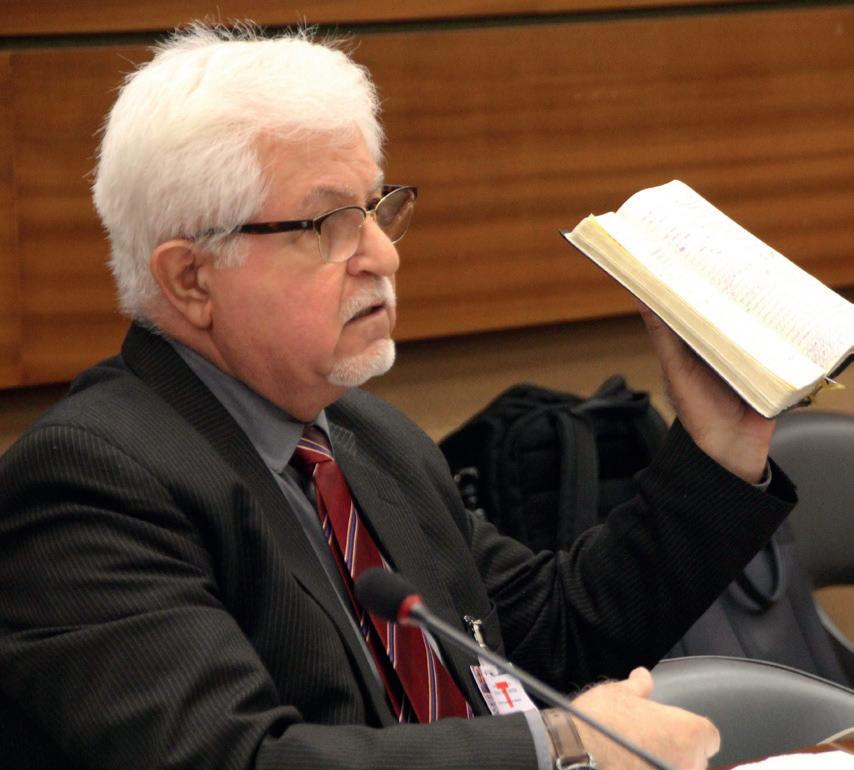
Your prayers make an unknowable difference
When we asked Dabrina what we could do to support Christians in Iran, her answer was clear: ‘Pray, pray, and pray! Every prayer is heard – and God reveals to Christians in prison that you are praying for them.’
We have received the same message from other Iranian Christians whenever we have spoken with them: God uses our prayers to encourage and strengthen those who are walking through the darkest valleys (Psalm 23:4). We may never hear every story, nor see the difference our prayers have made.
But every now and then we catch a glimpse of how God is working in people’s lives as a result of our prayers. May this stir us to pray all the more.
After the unprecedented peaceful protests of 11 July 2021, CSW supporters rose up in an incredible way to pray for people of all religions or beliefs in Cuba. Several church leaders were among those targeted, including pastors Yéremi Blanco Ramírez and Yarian Sierra Madrigal, who were violently detained.
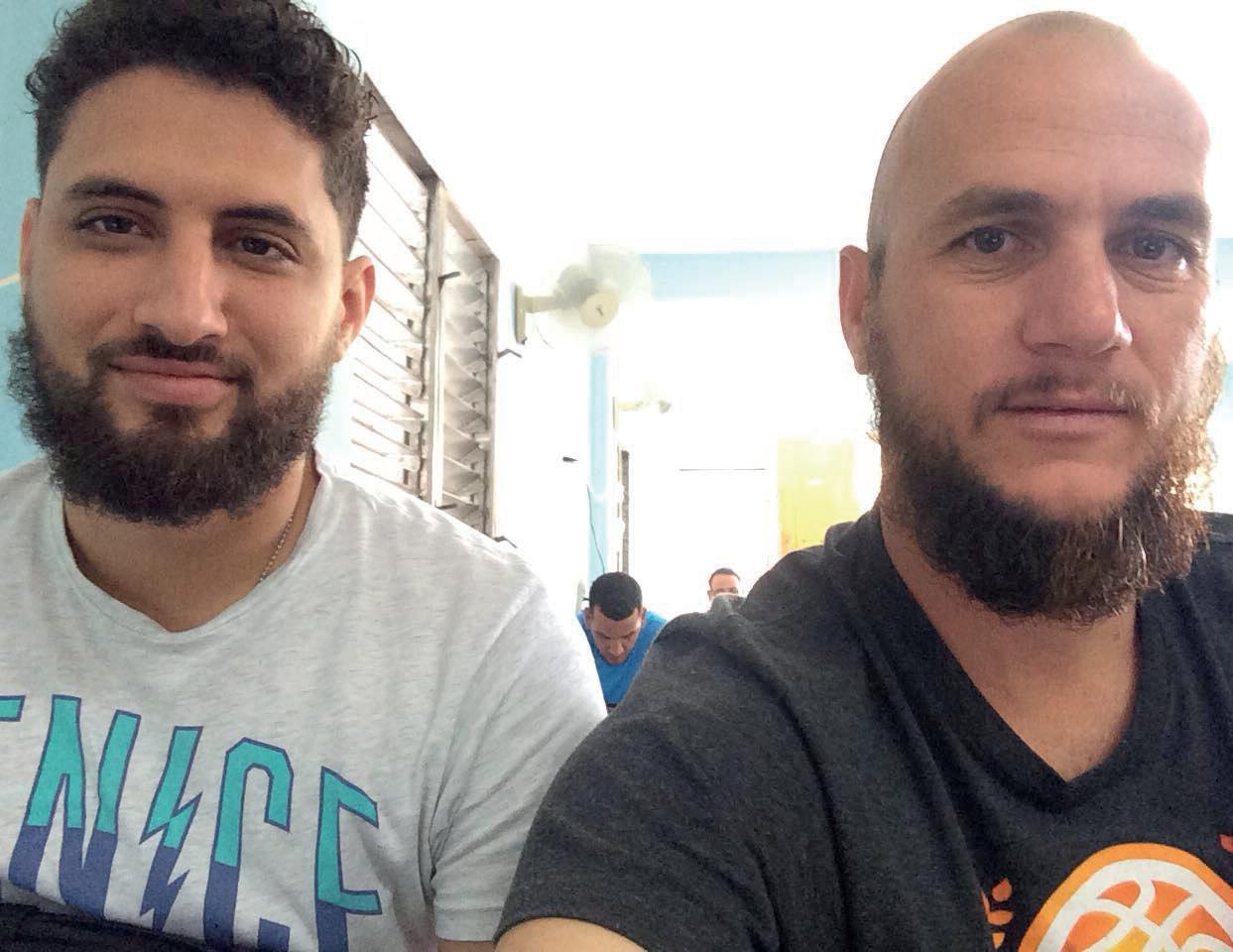
Pastor Yarian told us that God used your prayers and postcards to ‘make [their] adversity a spring of joy’, saying that the difficult times they had been through ‘…dimmed over the course of these months by the mercy God has shown us giving us new friends in different parts of the world.’
At a time when their families were facing immense pressure – including being evicted from their homes – God used your prayers to show them they were not alone; Christians around the world were standing with them.
When the government sought to isolate them, and target so many church leaders, your prayers were an act of solidarity.
There are so many ways that you can persist in prayer with us!
Daily: Pray through the latest Prayer Diary. Could you encourage a friend to join you?
Weekly:
Receive our weekly prayer email every Saturday morning: csw.org.uk/pray
Special events:
Gather your church to pray in November on the International Day of Prayer for the Persecuted Church (IDOP). Register for our online event on 5 November: csw.org.uk/IDOP
For people like Rocky and Raja, being accused of blasphemy in Pakistan has unimaginable consequences.
When they were accused this summer, hundreds of people stormed the Christian colony where they lived, demanding to execute the two men themselves. Hundreds of homes and 25 churches in Jaranwala were attacked, leaving countless Christians living in fear of their lives.

We believe everyone should be free to practise their faith without fear. Give £8 a month and help people like Rocky and Raja who are being targeted for their beliefs around the world.
T +44 (0)20 8329 0010
@CSW_UK
/CSWUK
csw.org.uk
PO Box 99 New Malden Surrey, KT3 3YF United Kingdom
